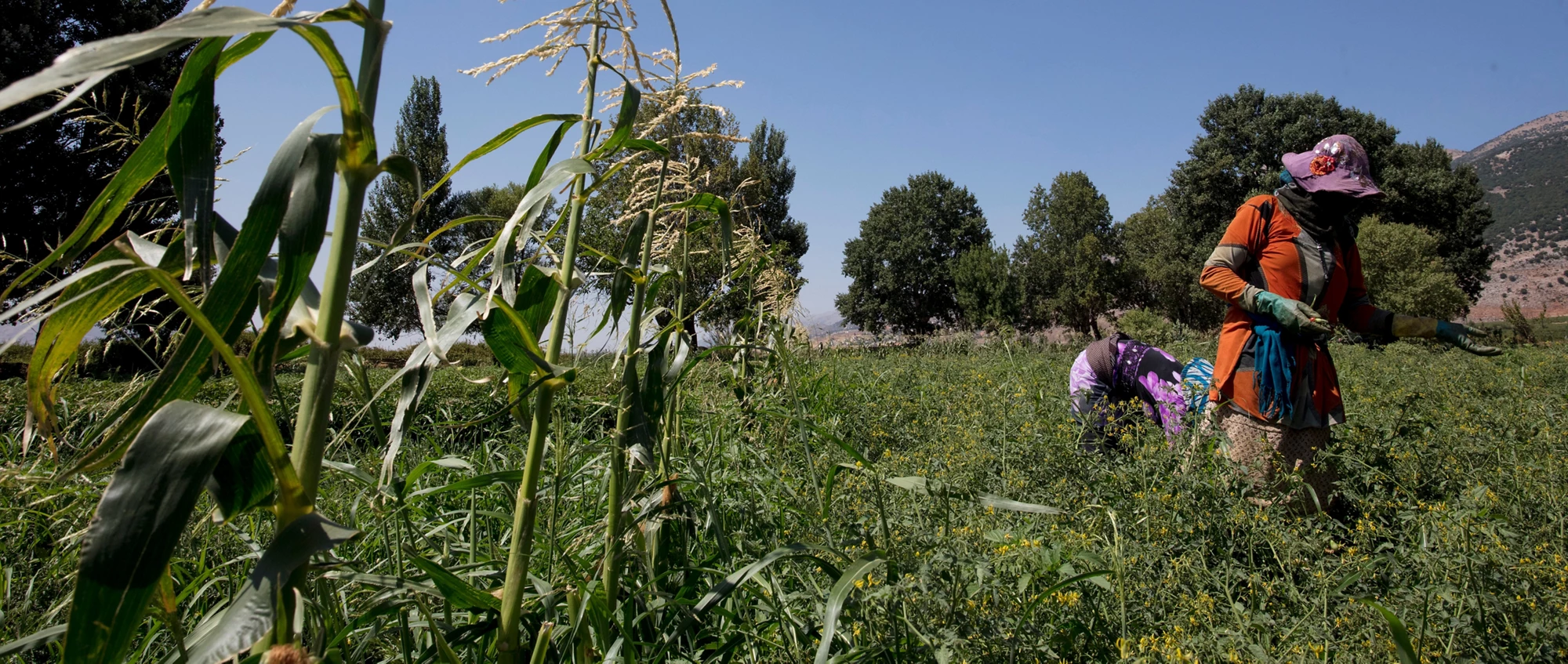 Foto: Dominic Chavez/IFC
Foto: Dominic Chavez/IFC
Violence against women is an invisible pandemic, recognized long before COVID-19, that impacts the lives of those who experience it but also affects their families and communities. When COVID19 hit, 243 million women had experienced sexual or physical violence by a partner in the previous year alone. Other statistics are equally stark: 15 million adolescent girls between the ages of 15-19 worldwide have experienced forced sex, and 137 women are killed by a family member every day.
Yet, on average, less than 40 percent of women and girls who experience violence seek any form of support. During the pandemic, calls to helplines in some countries have increased fivefold, suggesting that the problem is worsening amid lockdowns and restrictions on movement.
We know from past pandemics that several factors—economic stress, reduced mobility and access to health services, quarantines and social isolation, and exploitative relationships—come together to fuel the rise of gender-based violence (GBV).
Gender-based violence and COVID-19 have some similar features – both are global, knowing no borders, and making no distinction between income, race, or religion; both kill and inflict tremendous suffering on victims, both physical and mental. And to fight both of these pandemics, we need changes in behavior.
However, there is one big difference: while COVID is attracting global attention and action, GBV is still getting relatively little attention. It is not getting the global action, especially changes in behavior, that is overdue and urgently needed.
That is why during these 16 Days of Activism, launched on the International Day for the Elimination of Violence Against Women, we are reminded to redouble our efforts and investments to address this scourge, as this violence is a global pandemic alongside COVID-19.
- First, we have incorporated GBV measures into the implementation of IDA19, our $82 billion, three-year program to support development in the world’s poorest countries.
- Second, from January 1, 2021, we will disqualify contractors for failing to comply with GBV-related obligations.
- Third, we are systematically including GBV components in our COVID-19 response operations – as well as our broader portfolio.
As an example, the $128 million COVID-19 emergency response operation in Sri Lanka is helping the Ministry of Health include initiatives to enhance the health system’s response for survivors of GBV. The ministry will increase the number of centers that provide care to survivors and strengthen the capacity of staff to deliver quality services. It will also build community awareness about these services, so that survivors feel safe in seeking help.
This operation demonstrates that there is room for governments to address GBV while responding to COVID-19, including actions that:
- Ensure GBV services within health systems are designated as “essential.”
- Train health care staff to identify GBV cases, appropriately handle disclosures, and refer patients for additional services.
- Include GBV messaging in community health outreach during the emergency response.
- Incorporate modules into COVID-19 training that help staff identify, treat, and refer services to GBV survivors.
We also influence change through policy dialogue with governments, by helping them understand the range of reforms they can take to address gender-based violence. An example is in Fiji, where, after the onset of COVID, the Ministry of Women, Children and Poverty Alleviation led the creation of virtual referral pathways, negotiated with police to offer women with safe transport to services during curfew hours, and provided training for health care workers. The government also strengthened national helplines and partnered with the private sector on a communications campaign about GBV and COVID-19.
"The 16 Days of Activism Against Gender-Based Violence are a wake-up call to the global community, including the public and private sectors, to tackle these dual pandemics. We need to strengthen the international coalition of partners who are actively fighting GBV."
During recovery, governments can also build the resilience of vulnerable households by providing grants, housing, cash, or food vouchers to reduce economic stress. They can begin preparing households for sustained economic stability, as we know that financial strain, unemployment, and living in economically disadvantaged neighborhoods can impact the rates and severity of intimate partner violence. These efforts can also increase women’s control over economic resources.
To help our Bank teams, we have produced guidance on working with governments to extend cash or in-kind transfers to women. Over 70 percent of 22 rigorous quantitative and qualitative studies show that transfers to poor households reduce intimate partner violence. Even small reductions through specific programs are meaningful, given the widespread coverage, scalability, and cost-effectiveness of cash transfers. Operations can also help governments extend eligibility and coverage to domestic workers, women in informal employment, and unpaid women caregivers, as these workers may feel the economic impact of COVID-19 more severely than women in other forms of employment. In addition, teams can encourage broadening and easing of eligibility requirements for unemployment insurance that are restrictive to women, such as making this available for informal workers.
Progress is being made, but more needs to be done. The 16 Days of Activism Against Gender-Based Violence are a wake-up call to the global community, including the public and private sectors, to tackle these dual pandemics. We need to strengthen the international coalition of partners who are actively fighting GBV.
I am grateful that our teams working on COVID-19 response are dedicated to considering how they can do more to address this pressing issue. I encourage our staff and the global community to redouble their efforts during this unique time, when we have the opportunity to address two pandemics at once. The World Bank Group is committed to playing an active role in this effort, working in partnership at the global, regional and country levels. We believe violence against women and girls is a pandemic that can be eradicated in our lifetime.
RELATED
The World Bank Group’s Response to the COVID-19 (coronavirus) Pandemic


Join the Conversation